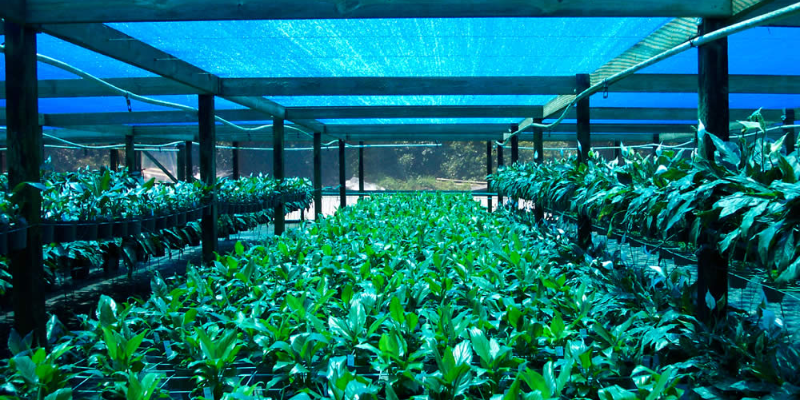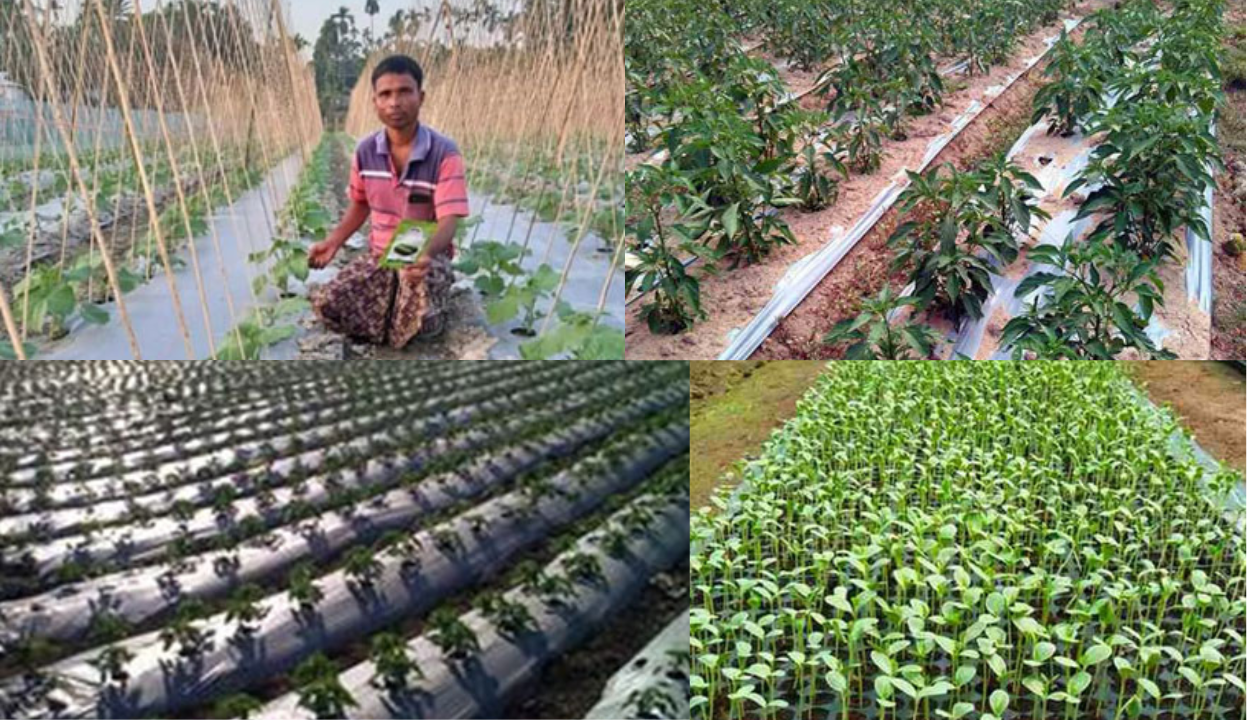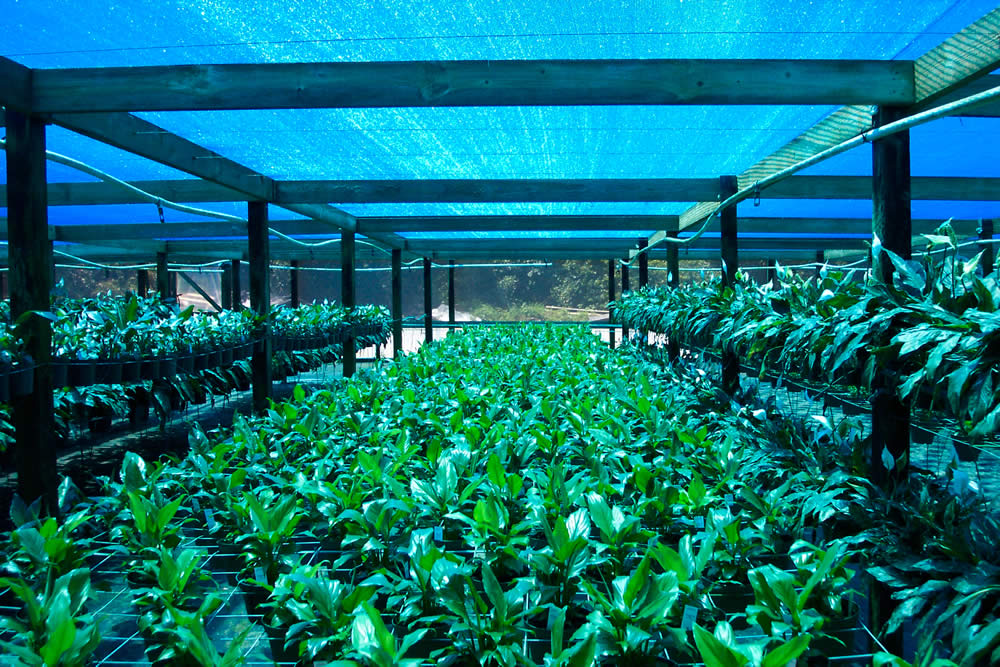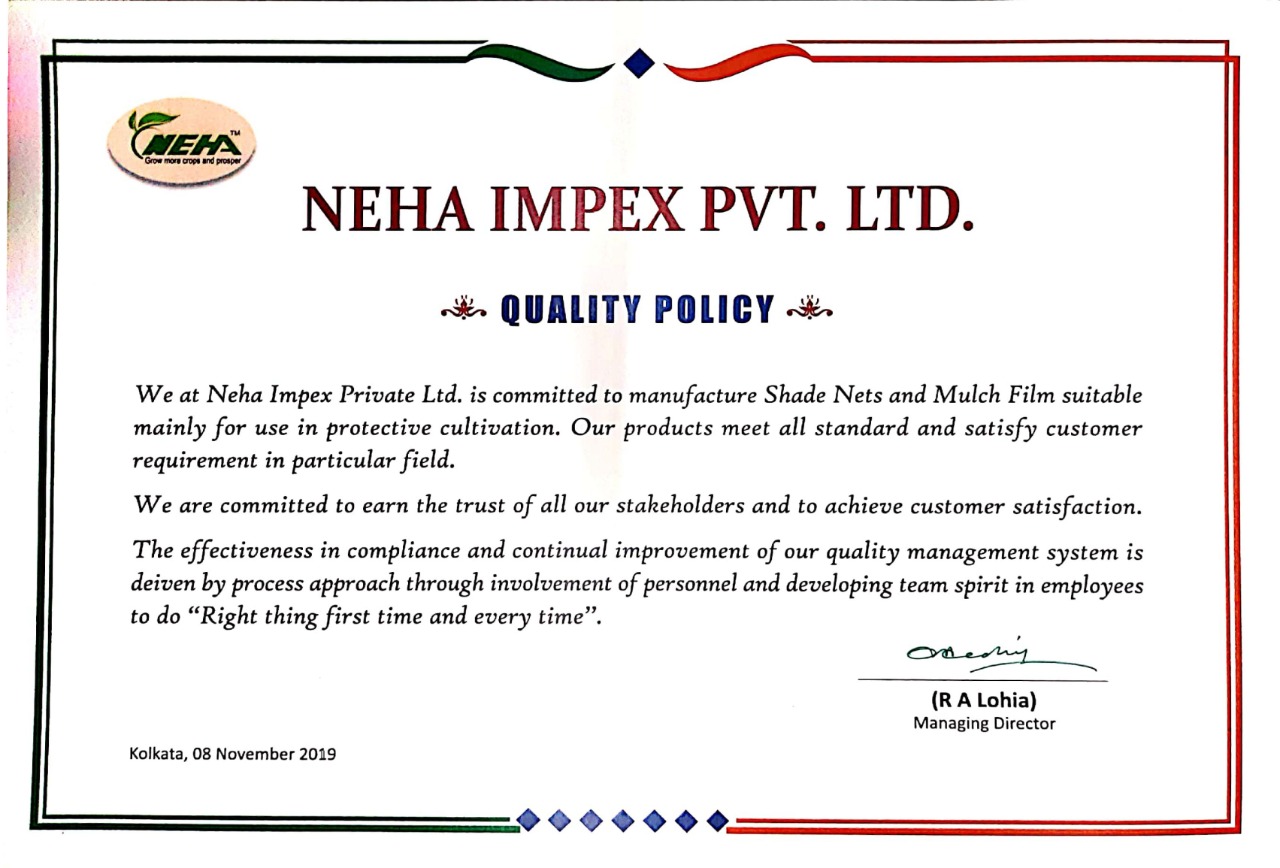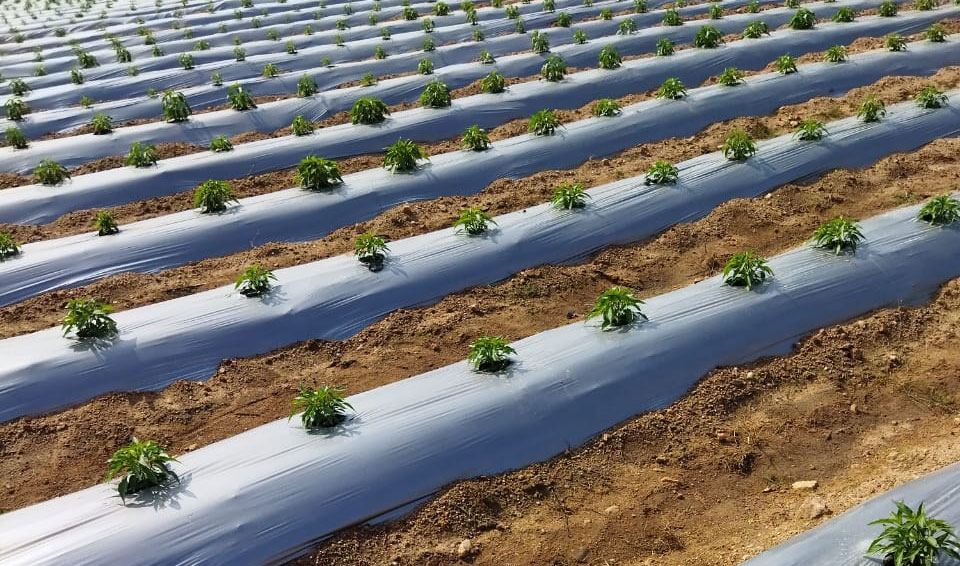
MULCH FILMS AND IT’S ADVANTAGE
In gardening, mulch films are plastic films often used to modify soil temperature, prevent moisture growth, limit weed growth and improve crop yield. It is often used for growing fruit and vegetable crops over large areas. In the past three decades, advancements in agricultural science and technology have led to great changes in agricultural production in India. Plastic mulch film has become an important agriculture material.
OVERVIEW
Mulch technical term means ‘covering of soil’. For the last 60 years, various natural things such as a leaf, straw, dead leaves, and compost are being used as mulch. The introduction of synthetic materials has changed the methods and benefits of mulching. If we observe, we can see that plastic mulches are completely water-resistant. Therefore, it prevents direct evaporation of moisture from the soil and thus limits the loss of water and soil erosion over the surface. This is how it plays an important role in saving water.
Types of Mulch films
Two kinds of mulches are available in the market today; Organic and Plastic. Organic mulch films are mostly bio-decomposable and are expensive. They do not serve the purpose very well but if you want to be environmentally friendly it can be used. Whereas, plastic mulches are widely used as it is cheap and serve the purpose very well.
A wide range of plastic films based on different polymers have been introduced in the late 90s. LDPE, HDPE and flexible PVC have all been used and although there were some technical performance differences between them, they were minor. Today the vast majority of plastic mulch is based on LLDPE because it is more economical in use.
Basic properties of mulch film:
- Air proof so as not to permit any moisture vapor to escape
- Thermal proof for the preservation of temperature and prevention of evaporation
- Durable at least for one crop season
Important parameters for mulch films
- Thickness: It does not affect mulching much unless the mulch is used for solarisation i.e. to increase soil temperature to control pests. It is beneficial to use a thin film if possible but we should consider the longevity of the film.
- Width: This depends upon the inter-row spacing. Normally a one to one and a half meter width film can be easily adapted to different conditions.
- Perforations: For the prevention of water stagnation around the plants, perforation is better. Too much perforation can encourage weed growth.
- Mulch color: It effects
- Soil temperature
- The temperature around the plants' air
- Soil salinity
- Due to a lesser quantity of water used
- Due to a reduction in evaporation and prevention of upward movement of water
Transparent film- Deposits more salt on the soil surface
Black film - Restricts water movement and the upward movement of salt is reduced.
- Weed control: Black film
- Insect control: Opaque shiny film like a golden color film
Quick guide for the selection of mulch film
- Rainy season Perforated mulch
- Summer season White transparent mulch
- Soil solarisation Thin transparent mulch
- Sandy soil Black mulch
- Early germination Thin mulch
Plastic film mulching was first developed by Japanese scientists in the 1950s, mainly for use in horticultural crops. It was introduced into India in the late 1970s. With the development of plastic film materials and application machines, the area of plastic mulch application has expanded from the western arid and semiarid regions to the high mountain cold regions of Northern India.
Plastic film mulching was used only for vegetable and flower production for several years, whereas now it is widely used in many cash crops, including peanut, watermelon, sugarcane, and tobacco as well as grain crops such as corn, wheat or rice. It has led to increases of 20%–50% in grain crop yield and plays a key role in ensuring the supply of agricultural goods in India.
Advantages of Plastic mulch film
- It is completely impermeable to water
- Prevents direct evaporation of moisture from the soil preventing water loss.
- By evaporation suppression, it prevents the rise of water containing salts.
- It can reduce the loss of plant nutrients through leaching.
- Provides artificial barrier to soil pathogens.
- Mulches maintain a warm temperature even during night-time which enables seeds to germinate quickly and for young plants to rapidly establish a strong root growth system.
- Better modulation of crops like groundnuts and potatoes.
- Soil erosion is adverted.
- Serves longer than organic mulch films.
Takeaways
Mulch films have become an integral part of agriculture practices, especially those which are plastic. It is very important to choose the correct mulch film for your crops. Don’t worry, we have got you covered. Neha Impex, a prominent manufacturer, supplier of a wide range of products as per BIS standard for use in Agriculture & other sectors. Based in Kolkata, this firm has decades of experience in guiding and shipping agriculture products. These products are manufactured in state-of-art machinery and have a SASMIRA approved in-house Quality Control Lab.
Being a leading farming product supplier won’t only guarantee your confidence but will also go easy on your wallet. Contact Nehashadenet, the leading Mulch Film manufacturer in Kolkata for more information.





